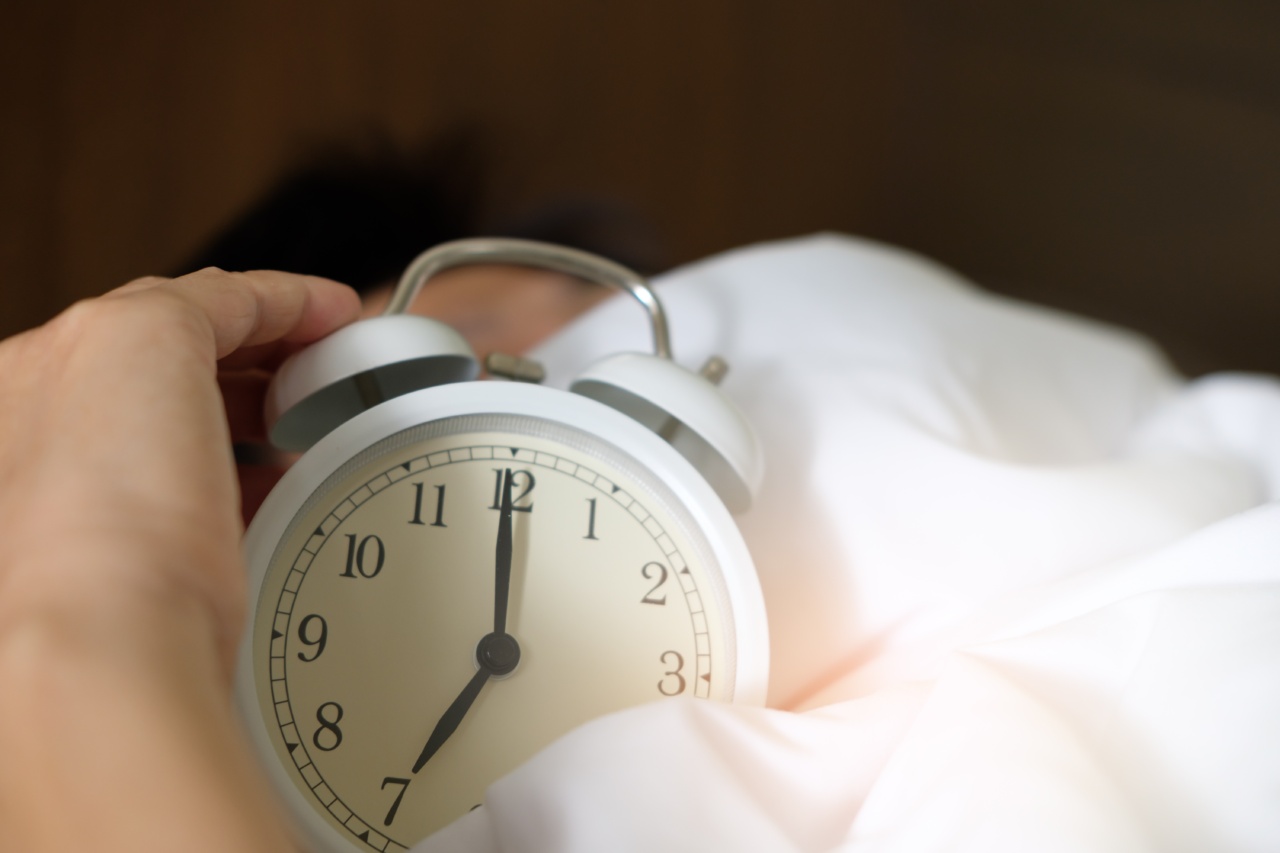Many people depend on alarm clocks to wake them up in the morning, but they may not realize the physiological stress that comes with this routine. Alarm clock stress is a real phenomenon that can have a significant impact on our overall well-being.
In this article, we will explore the physiology behind alarm clock stress and its potential consequences for our health.
The Role of Cortisol
Cortisol, commonly known as the stress hormone, plays a significant role in our body’s response to waking up abruptly to the sound of an alarm clock.
When the alarm goes off, our body perceives it as a threat, triggering the release of cortisol from the adrenal glands.
Cortisol prepares our body for action by increasing our heart rate, blood pressure, and blood sugar levels. It also suppresses non-essential functions like digestion and immune response temporarily.
While this response can be useful in emergency situations, experiencing it every morning can put a significant strain on our bodies.
Disrupting the Natural Sleep Cycle
The human body follows a circadian rhythm, an internal clock that regulates our sleep-wake cycle. When we use an alarm clock to wake up, we are often interrupting this natural rhythm.
This disruption can lead to sleep inertia, a state of grogginess and reduced cognitive function upon awakening.
When we abruptly wake up, we are more likely to feel tired and disoriented, as our body has not had enough time to transition naturally from deep sleep to wakefulness.
Sleep inertia can have negative effects on our productivity, mood, and overall cognitive performance throughout the day.
The Impact on Cardiovascular Health
The sudden jolt from an alarm clock can also have consequences for our cardiovascular health. Waking up abruptly activates our sympathetic nervous system, responsible for the fight-or-flight response.
This leads to an increase in heart rate and blood pressure, which, if repeated daily, can strain our cardiovascular system over time.
Studies have shown that people who wake up to alarm clocks regularly have a higher risk of developing hypertension and other cardiovascular conditions.
Prolonged exposure to alarm clock stress can disrupt our body’s natural regulation of blood pressure and increase the likelihood of chronic health issues.
The Connection to Mental Health
Alarm clock stress can also have implications for our mental health. The abrupt awakening from a deep sleep can induce feelings of stress, anxiety, and irritability.
This, combined with the ongoing elevated cortisol levels, can contribute to the development of mood disorders such as depression and anxiety.
Additionally, the disrupted sleep-wake cycle caused by alarm clocks can contribute to sleep disorders like insomnia. Lack of quality sleep can further exacerbate mental health issues and hinder our ability to cope with daily stressors.
Strategies to Reduce Alarm Clock Stress
While it may be challenging to completely eliminate the use of alarm clocks, there are strategies we can implement to minimize the physiological stress associated with them:.
1. Gradual Alarm Clocks
Consider using alarm clocks that mimic natural light and gradually increase in brightness to mimic the rising sun. These alarm clocks can help simulate a more natural awakening, reducing the sudden jolt and cortisol response.
2. Establish a Consistent Sleep Schedule
Go to bed and wake up at the same time every day, including weekends, to regulate your body’s internal clock. By maintaining a regular sleep schedule, you may find that you need an alarm clock less often.
3. Optimize Your Sleep Environment
Create a sleep-friendly environment by ensuring your bedroom is quiet, dark, and cool. Use blackout curtains or an eye mask to block out external light, and use earplugs or a white noise machine to minimize noise disturbances.
4. Practice Relaxation Techniques
Prioritize relaxation techniques such as deep breathing, meditation, or gentle stretching before bed. These activities can help calm the mind and body, reducing the overall stress response associated with waking up to an alarm clock.
Conclusion
Alarm clock stress is a physiological response that many people experience daily. The release of cortisol, disruption of the natural sleep cycle, and strain on the cardiovascular system can have negative effects on our overall well-being.
By implementing strategies to minimize alarm clock stress, we can help reduce the potential health consequences associated with this routine.






























